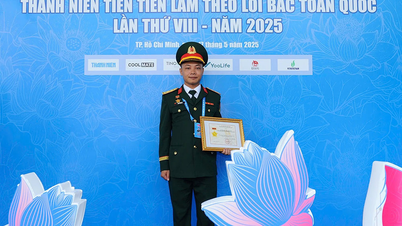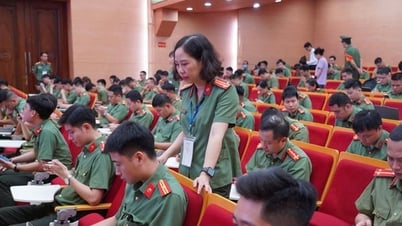At this time, high school seniors are frantically gathering information about majors to choose a future career. The emergence of thousands of “career counseling” videos like this has left many students confused.
Faced with such a danger, experts all affirm that not everyone can provide career counseling. Career counseling is not about orienting students into this or that field, but rather helping students understand themselves, their careers, and decide their own future direction. In addition to basic knowledge about career counseling and related skills, career counselors need to adhere to six principles of professional ethics: autonomy, harmlessness, profitability, objectivity, responsibility, and honesty.
It is necessary to find ways to explain and call on students to be alert to false information. However, instead of criticizing the career counseling "market" on TikTok, we should recognize that career counseling still has many shortcomings. Recently, career counseling activities have been taking place widely across the country, but the target audience is mainly 12th graders . This only solves the problem because the career counseling time is too short, not enough for students to research specific careers. In many countries, this work has started from middle school. Early access to careers can help families and students exploit their own abilities and prepare their learning capacity early.
In addition, counseling activities require coordination between students, parents, high schools, universities, colleges and even businesses. Based on their strengths, each party provides in-depth information about the careers that students want to learn about. The reason why some career guidance videos on TikTok, although not properly invested and providing incorrect knowledge about careers, still attract candidates, with hundreds of thousands of views and interactions, is because they capture the right approach trends of young people. Therefore, instead of organizing many counseling events for thousands of people, which is costly in both cost and time, organizers can flexibly create more quality products on social networks to provide information to students.
This incident also makes us think about the gap in forecasting human resource needs, an important database for the work of streaming, career guidance, and choosing future careers for high school seniors. At many large admissions and career guidance events, many candidates still ask the question "What job will I do after graduating from this major?", "What major is needed in the future?", "This major is needed now but after 4 years of study will it become saturated?"... From there, we can see that career guidance for students is still not satisfactory, not really personalizing information. That forces them to look for random "advice" online. The more they get lost in social networks, the more confused and misguided young people become, following temporary trends.
Finding a good learning environment, determining what you want, meeting the needs of society and choosing the right major are the first important lessons before you enter life. That lesson is not something you can do alone.
Thai An
Source



























































































![[OCOP REVIEW] Tu Duyen Syrup - The essence of herbs from the mountains and forests of Nhu Thanh](https://vphoto.vietnam.vn/thumb/402x226/vietnam/resource/IMAGE/2025/6/5/58ca32fce4ec44039e444fbfae7e75ec)







Comment (0)